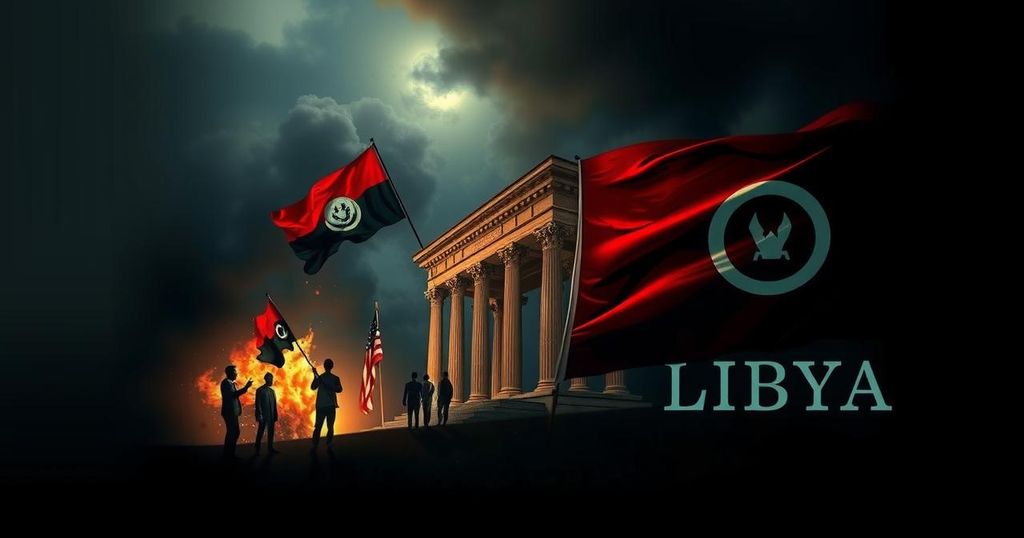Struggle for Central Bank Control Could Destabilize Libya’s Fragile Peace
Libya’s political landscape is on the verge of upheaval as the fight for the Central Bank intensifies, highlighting the fragile peace established since the 2020 ceasefire. The rivalry between the western and eastern governments threatens to escalate as factions jockey for control over the nation’s oil wealth, jeopardizing the ongoing efforts to unify the country.
Libya continues to experience instability in the aftermath of the 2011 Arab Spring, which led to the fall of long-time dictator Moammar Gadhafi. Following a civil war that concluded in 2020, the country remains divided between two rival factions, each claiming authority over different regions. Tensions have escalated recently, centered around the control of the Central Bank of Libya, which manages the nation’s significant oil wealth. The presidential council in Libya attempted to dismiss the central bank’s head, Sadik al-Kabir, through a decree that he subsequently rejected. Although analysts view the decree as lacking legal authority, the support from the western government leader indicates a potential shift in power dynamics as they seek to establish a new board of directors for the central bank. The political landscape, characterized by an uneasy coexistence since the ceasefire, is now threatened as factions vie for control over vital state resources, renewing concerns about the future of Libya’s peace and governance.
Since the ousting of Gadhafi in 2011, Libya has struggled to achieve lasting peace and stability, bouncing between various leadership forms. The country now features a split between a U.N.-recognized administration in the west led by Prime Minister Abdul Hamid Dbeiba and a rival government in the east backed by warlord Khalifa Hifter. The fundamental issue at hand is the management of Libya’s oil resources, which has fueled ongoing political strife. Previous attempts at establishing a unified government have faltered with the failure to conduct promised nationwide elections. Amid this backdrop, developments regarding the central bank’s leadership have intensified the pre-existing frictions between the eastern and western factions.
The ongoing struggle for control over the Central Bank of Libya signifies a critical juncture for the already tenuous political landscape of the country. The dismissal attempt of Sadik al-Kabir reflects deeper divisions that could destabilize a fragile peace. Analysts warn that as factions engage in a contest for control over oil revenues, the potential for renewed conflict looms ominously over Libya’s future.
Original Source: www.nytimes.com




Post Comment